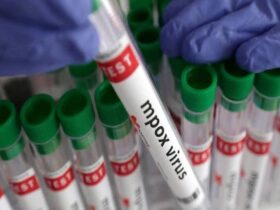Taiwan has found a carcinogenic substance in two types of instant noodles from Malaysia and Indonesia, sparking health concerns and recalls. The substance, ethylene oxide, is a chemical used as a pesticide and a sterilizer that can cause cancer, birth defects, and skin and eye irritation.
The Taipei Department of Health said on Monday, 24 April 2023, that it detected ethylene oxide in ‘Indomie: Special Chicken Noodles’ and ‘Ah Lai White Curry Noodles’ from Malaysia and Indonesia. The department said it tested 36 samples of instant noodles from various countries and found that only these two products exceeded the safety limit of 0.05 parts per million (ppm) for ethylene oxide. The Malaysian product had 0.07 ppm and the Indonesian product had 0.08 ppm.
The department said it has ordered the importers of these products to stop selling them and recall them from retailers. It also advised consumers who have bought these products to return them or dispose of them. The department said it will continue to monitor the situation and conduct more tests on other imported food products.
The manufacturers of these products have responded to the findings by conducting their own tests and investigations. The spokesman for “Ah Lai White Curry Noodles” said they had sent samples to be tested by a lab to check for ethylene oxide based on the claims made by the Taipei Department of Health. He said they were confident that their product was safe and complied with the standards of Malaysia and other countries where they export to.
The Trade Ministry of Indonesia said it was working with the Indonesian Economic and Trade Office (KDEI) in Taiwan to examine the allegations of ethylene oxide in the noodles. The ministry said it had checked the product and found that it was not from Indonesia, but from a third country that imported it from Indonesia and then exported it to Taiwan. The ministry said it would coordinate with the relevant authorities to ensure the safety and quality of Indonesian products.
The findings of ethylene oxide in instant noodles have also raised concerns in Africa, where instant noodles are a popular and affordable food item. Many African countries import instant noodles from Malaysia and Indonesia, as well as from China, India, Thailand, and Vietnam. According to the World Instant Noodles Association, Nigeria is the 11th largest consumer of instant noodles in the world, with 1.92 billion servings consumed in 2020.
The reaction of African consumers and regulators to the news of carcinogenic substance in instant noodles has been mixed. Some consumers have expressed fear and anger over the potential health risks of eating instant noodles, while others have shrugged off the news as exaggerated or irrelevant. Some regulators have announced plans to conduct tests on imported instant noodles and ban or recall any products that contain ethylene oxide, while others have said they have not received any official notification or evidence from Taiwan or other sources.
One of the regulators that has taken action is the National Agency for Food and Drug Administration and Control (NAFDAC) of Nigeria, which is responsible for ensuring the safety and quality of food products in the country. NAFDAC said it was aware of the recalls of Indomie Instant Noodles ‘Special Chicken Flavour’ by the Ministries of Health in Malaysia and Taiwan on account of the alleged presence of ethylene oxide. NAFDAC said it had contacted its counterpart agencies in Malaysia and Taiwan to obtain more information on the issue.
NAFDAC also confirmed it had collected samples of Indomie Instant Noodles ‘Special Chicken Flavour’ from different sources in Nigeria for laboratory analysis to determine if they contained ethylene oxide. NAFDAC said it would inform the public of its findings as soon as possible.
NAFDAC assured Nigerians that it was committed to safeguarding their health and well-being by ensuring that only safe and wholesome food products are available in the market. NAFDAC also advised Nigerians to report any suspicious or substandard food products to its nearest office or through its toll-free number.









Got a Question?
Find us on Socials or Contact us and we’ll get back to you as soon as possible.